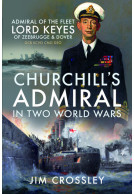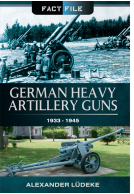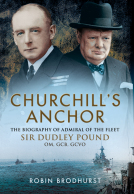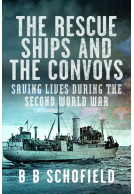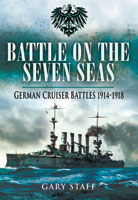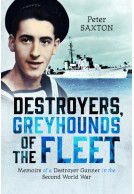Voices From Jutland (Hardback)
A Centenary Commemoration
Imprint: Pen & Sword Maritime
Pages: 202
Illustrations: 20
ISBN: 9781473823716
Published: 8th February 2016
Nomination
Nominated for the Maritime Foundation’s Mountbatten Maritime Award for Best Literary Contribution.
(click here for international delivery rates)
Need a currency converter? Check XE.com for live rates
| Other formats available - Buy the Hardback and get the eBook for free! | Price |
|---|---|
| Voices From Jutland ePub (19.3 MB) Add to Basket | £6.99 |
Jutland was the only major fleet engagement to take place during the First World War, and indeed the only time in history in which columns of great dreadnought battleships fought each other. In spite of terrible losses of life, the battle did nothing to change the strategic situation in northern European waters, in fact it simply confirmed Britain’s command of the seas and her ability to enforce the blockade which was eventually to lead to Germany’s downfall.
This new book examines the strengths and weaknesses of both navies and identifies some of the reasons for the disappointing performance of the Royal Navy in the battle. Confusion and poor staff work in the Admiralty led to a failure to make proper use of the vital information gleaned by Room 40, the brilliant Admiralty intelligence centre, which was able to read German signals traffic. Many years of totally irrelevant experience and inappropriate disciplines in the Victorian and Edwardian navies were poor preparation for 20th century warfare, and led to bad decisions being made by senior officers during the battle. Careless ammunition handling resulted in the loss of three battle cruisers and over 3,000 deaths. British warships were designed for world-wide cruising and to project naval might on a global basis, instead of being optimised for encounters close to home, in the North Sea. By contrast the German fleet performed magnificently and their ships proved extremely durable, but this was not enough to enable them to mount a serious challenge to superior British fire power and numbers.
The book argues that the building of the High Seas Fleet was a strategic blunder on the part of the Germans, who could have forced Britain out of the war completely if they had instead concentrated on their submarine fleet and on mine-laying.
Admiral Jellicoe, commander of the British Grand Fleet, was in the unenviable position of having to give overriding priority to keeping his fleet intact, rather than inflicting a crushing defeat on the enemy. His steadfast pursuit of this objective was to lead to ultimate victory.
Such fine narrative is consistent throughout.
Jon Sandison
Overall, this is an extremely accessible and luminous account of this Battle, which will assist in further understanding of this landmark sea Battle of the Great War.
As featured in
Mercator Magazine, May 2019
A well balanced approach that weighs the actions of both sides effectively and Crossley's style is clear and concise, which makes for easy reading.
Mariner's Mirror
As featured in
Navy Today, June 2016, issue 200 – CDR Richard Jackson RNZN
...All-in-all this is a well written, well compiled and introductory account of the origins, personalities, ships, weapons, tactics, the war at sea before Jutland, the action itself and its consequences. This book provides a good overview which will be welcomed by all those requiring an accessible but relatively brief "starter" account.
Marine News, June 2016 - Richard Osborne
Accounts of Jutland tend to be lengthy but in this book of only 159 pages with an additional nine annexes, Jim Crossley has with clarity and skill dissected this seminal event of the First World War, timed with its centenary.
Pennant May 2016
This is a well written book, the product of careful research; it is to be recommended.
As featured in
Eastern Daily Press
As reviewed on Destructive Music
Destructive Music
The story of the largest naval battle of the First World War is told here in a an imaginative and informative way by putting together a tough and objective analysis of Jutland with a collection of accounts from those involved.
John Ash - Britain at War
The point in particular which stands out, is the terrific loss of life, said here to be 8,645 men, and 25 ships in little over 12 hours, is extremely sobering even by the bloody standards set out by the First World War.
As featured in
Forces War Records/June 2016
Voices from Jutland begins with "...There is one obvious question about the battle of Jutland - 'Who won?'... the answer is clear. The victors were the British. They achieved exactly what they needed from Jutland although this was not apparent at the time...". This tends to contradict the view in the NSA. Nevertheless, this fresh account of the battle, using wherever possible first-hand accounts of those who took part in the action, brings the battle to life. There is a good balanced concluding chapter giving a clear analysis of the material results and an assessment of the 'sound' handling, for the most part, of the fleets by the commanders on both sides (Jellicoe and Scheer cool headed and logical as well as Hipper and Hartog but less so by Beatty). It also sets out the background to the controversy mentioning how the Grand Fleet was initially scorned on return home. The analysis is well backed up by a series of good appendix.
Scuttlebutt, ed. No 52, 2016 - John Roberts
A number of books on Jutland have been published to commemorate the centenary of the Battle of Jutland which was fought on 31st May and 1st June 1916. Many readers new to the subject will be looking for a useful introductory book that explains the fighting, its background and action in language of the 21st Century. For many today, even those who currently serve in one of the world’s navies, the experiences of the First World War are difficult to understand without detailed explanation. For example very few modern sailors would know how to man-handle large cordite charges or shells inside a gun-turret in action. Voices from Jutland is the up-to-date general introduction that many will be looking for.
Australian Naval Institute - Dr Gregory P. Gilbert
In a readable and easily comprehensible style, Jim Crossley brings together all aspects of the fighting in the North Sea in such a refreshing manner that, after reading, one can feel that their understanding of Jutland and the experience of naval battle in World War One has been augmented. Although easy to read, Crossley does not dumb down the many complexities or controversies surrounding Jutland. Rather, he provides simple-to-understand narratives and explanations that illuminate what is elsewhere often represented as a confused, grey and overcast battle. For this the author should be congratulated.
Voices from Jutland describes the rivalry between the British and German navies before 1914, the ships, their weapons and the naval tactics of naval battle on both sides, and summarises the major events in the naval war leading up to the Battle of Jutland in mid-1916. The books explains the main events of the battle itself – the ‘Run to the South’, the ‘Run to the North’, the clash of battle fleets, the ‘Night Action’ and the situation at dawn on 1 June 1916...
... Voices from Jutland: A Centenary Commemoration is a respectable introduction for someone who is a relative novice in naval history. It is a good place to start for those who wish to further their knowledge in a subject which is mandatory knowledge for many naval professionals.
A reasonable description of the battle which examines the strengths and weaknesses of both navies and attempts to identify some of the reasons for the disappointing performance of the Royal Navy in what the public hoped (and expected) would be another Trafalgar.
Warship World, May/June 2016
As featured on Julian Stockwin's blog
Julian Stockwin
The Battle of Jutland centenary is on 31st May this year (2016) and those with a specific interest in the battle will find much interest in this book.
Amazon Review - Paul Nixon
About Jim Crossley
Jim Crossley read Modern History at Cambridge. He has had a lifelong interest in naval affairs. He is himself a keen sailor and springs from a family with a long naval tradition. His own father was a midshipman on the battleship Resolution in 1916 and his mother was a cousin of Commodore William Goodenough, one of the central figures in the Jutland battle.
Jim Crossley was nominated for the Maritime Foundation’s Mountbatten Maritime Award for Best Literary Contribution for their book 'Voices From Jutland: A Centenary Commemoration'.









